#chinese diplomacy
Text

Behbeh
#panda#pandas#panda diplomacy#china#chinese diplomacy#foreign policy#president xi#xi jinping#bears#panda bears#usa#2023#cartoon#tux#tuxedo#teddy bear#illustration#dailybehbeh#behbeh#cute#stuffed animal#trending#art#news#funny#daily#daily news#daily bear#comedy
9 notes
·
View notes
Text
Brokering A Solution: China
However, if the above, and aforementioned ideas surrounding Taiwan, and the five dash line area make you squeamish, perhaps they should.
An order to maintain peace, in a part of the world which has drawn in many a United States Presidential Administrati
Photo by Markus Winkler on Pexels.com
However, if the above, and aforementioned ideas surrounding Taiwan, and the five dash line area make you squeamish, perhaps they should.
An order to maintain peace, in a part of the world which has drawn in many a United States Presidential Administration, and left them out to dry, there must be both sides that can agree to the mechanisms in place.
That is…
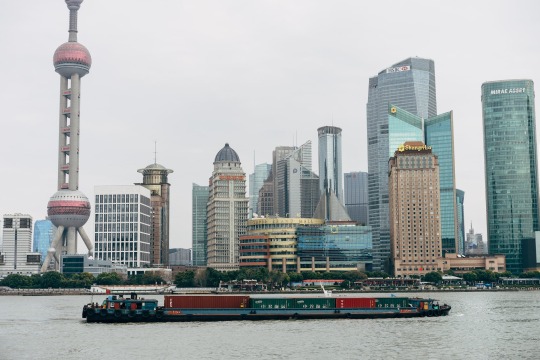
View On WordPress
#Belt and Road Initiative#BRI#China#Chinese Diplomacy#Development#Diplomacy#East Asia#internal security#politics#Space Based Assets#United States
1 note
·
View note
Text
For #WorldLemurDay:
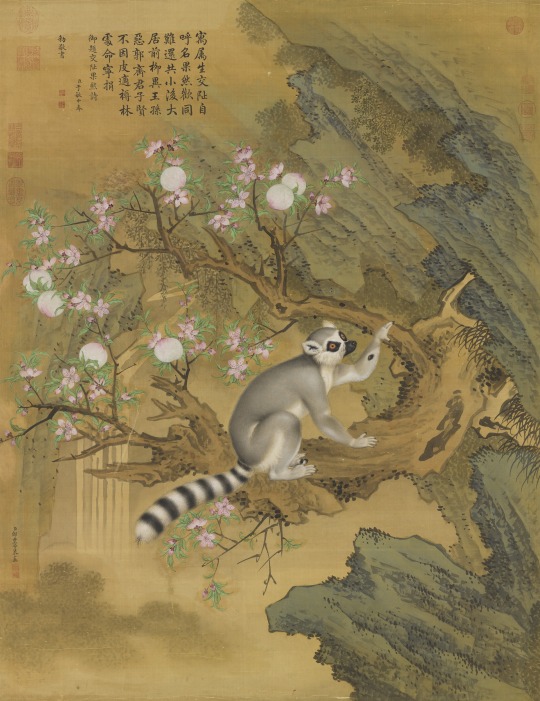
Giuseppe Castiglione (Italian, 1688-1766)
Cochin Lemur, 1761
Qing Dynasty, China
Hanging scroll, ink & colors on silk
109.8 x 84.7cm
National Palace Museum, Tapei
Lemurs are of course not native to China, but rather endemic to Madagascar. This one was given to the Qianlong Emperor by the King of Vietnam, who likely got it from European traders. It was then painted by Castiglione, an Italian Jesuit missionary who served as an artist in the Chinese imperial court. The background was likely painted by Jin Tingbiao (Chinese, d. 1767). A truly international history!


🆔 Castiglione’s lemur is easily identifiable as a Ring-Tailed Lemur (Lemur catta), but note the level of morphological detail - he included the antebrachial gland on the forearm (used for scent marking), and the tail appears to have suffered some loss at the tip.
#animals in art#animal holiday#lemur#ring-tailed lemur#primates#scroll art#hanging scroll#Chinese art#Asian art#East Asian art#18th century art#ID#World Lemur Day#Giuseppe Castiglione#Jin Tingbiao#Qing Dynasty#animal diplomacy
27 notes
·
View notes
Text
How did we get to this point? The origin story of Taiwan most familiar to Americans begins in 1949, when Chiang Kai-shek’s nationalist forces, locked for years in a civil war with Mao Zedong’s Communists, were defeated. Along with much of his remaining army, Chiang fled to Taiwan and set up a government-in-exile called the Republic of China. That government was recognized by the United States. But within a few years of Richard Nixon’s 1972 Cold War opening to Beijing, the U.S. formally switched diplomatic recognition to the People’s Republic. Ever since, Taiwan’s status has been cloaked in ambiguity. The U.S. acknowledges Beijing’s claim to Taiwan without recognizing its sovereignty over the island. To help deter a Chinese effort to seize Taiwan by force, the U.S. has pledged to provide Taiwan with the means to defend itself.
That origin story explains Taiwan’s curious geopolitical status, but it leaves a lot out. When Chiang fled to Taiwan—with roughly 2 million Chinese from the mainland—there were some 6 million people already living on an island that was just emerging from 50 years of Japanese rule. Most of the people living on the island when Chiang arrived could claim roots in Taiwan going back hundreds of years. They had their own languages and culture. So too did the island’s many Indigenous groups, such as the Amis, the Atayal, and the Paiwan. To subjugate the island, Chiang killed and imprisoned tens of thousands over decades—a period known as the White Terror. He set up a military dictatorship under the leadership of his Chinese nationalist Kuomintang Party (KMT) and, from this offshore platform, vowed to reclaim mainland China.
Taiwan is different now. With its broad boulevards, glass towers, military monuments, narrow side streets, night markets, and ample signs in English, Taipei today presents an ambience of blended cultures: Chinese, Japanese, Western, and distinctly Taiwanese. Bubble tea, a Taiwanese invention, is everywhere. But consider what it was like to grow up in the shadow of Taiwan’s postwar history, and you can better understand the profound ways in which younger generations have been remaking the island’s politics and identity.
Emily Y. Wu is a professional podcaster who blends a focus on youth culture with an urgent concern for Taiwan’s political present. (One of her shows is called Metalhead Politics.) She is among dozens of Taiwanese I spoke with during the past year, first on Zoom, then in person in Taipei. Wu was born under KMT martial law in 1984. Her family did not come over with Chiang; they had lived in Taiwan for generations. “Chiang Kai-shek brought China over,” she told me. “I grew up always knowing that there was this alternate history: It was Taiwanese history, which was not taught in school.” Students were taught Chinese history and geography under the presumption that the KMT would one day govern China again. Mandarin was spoken in class, and speaking Taiwanese was discouraged. Wu recalled Lesson 9 of her childhood textbook: “ ‘Hello teachers, hello students, we are Chinese!’ ”
But a movement for democracy was building. “We grew up hearing these names, knowing that there was a group of activists, scholars, lawyers that tried to imagine a free Taiwan,” Wu explained. Many of those people were members of the Democratic Progressive Party (DPP), which currently governs Taiwan. In 1987, the KMT lifted nearly 40 years of martial law. Wu’s political consciousness was shaped by the protests, marches, and hunger strikes that led to Taiwan’s first true presidential election, in 1996.
By the beginning of the 21st century, Taiwan was becoming ever more democratic—and ever more Taiwanese. The school curriculum changed: Taiwan’s distinct history was taught, as were Taiwanese languages. Taiwan also began to celebrate its Indigenous population. After the election of President Ma Ying-jeou, in 2008, links of trade, investment, and travel helped reduce tensions with China. Ma was from the KMT, and the party’s Chinese heritage and its ties to Taiwan’s business elite eased the way to détente with Beijing. But many Taiwanese, particularly the young, feared that forging too close a connection could ultimately give Beijing leverage over Taiwan. In 2014, in what became known as “the Sunflower Movement,” named for the flower that served as a symbol of hope, students occupied the Taiwan legislature to oppose a free-trade agreement with China. After a tense standoff, they succeeded in stopping the deal. They also helped propel a political wave that in 2016 brought the election of the DPP’s Tsai Ing-wen as president.
As Taiwan was becoming more democratic, China was becoming more autocratic. And as Taiwan was becoming more Taiwanese, China was becoming more fervently nationalist. After the ascent of Xi Jinping to the head of the Communist Party, in 2012, Beijing shifted from incentives to coercion. Xi’s government proved adept at bullying companies and entire countries to stop doing business in Taiwan and to recognize China’s narrative of sovereignty. Xi also began escalating crackdowns on China’s periphery—in Xinjiang province and in Hong Kong.
— Taiwan Wants China to Think Twice About an Invasion
#ben rhodes#taiwan wants china to think twice about an invasion#history#military history#current events#politics#diplomacy#international relations#imperialism#economics#commerce#racism#oppression#chinese civil war#white terror (taiwan)#project national glory#sunflower student movement#china#republic of china#taiwan#taiwanese indigenous peoples#amis people#atayal people#paiwan people#hong kong#kuomintang#democratic progressive party#chiang kai-shek#tsai ing-wen#xi jinping
4 notes
·
View notes
Text
Worldbuilding: What Everybody Knows That Isn’t So
Sometimes everyone in a setting “knows” something that turns out to be flat-out wrong. The world is flat, disease is caused only by evil spirits, sacrificing hearts on an obsidian altar keeps the sun in the sky. And sometimes... everyone knows what’s actually true, but upholds a polite fiction in public so no one has to officially notice and do something about it. No one really wants to do all the paperwork to haul in someone going three miles over the speed limit on the highway,
and - very often - no one wants to go to war when trade is much more profitable.
In the 1600s, given trade between China, Japan, the Ryukyu Kingdom, and Korea, this led to the invention of an imaginary country, Tokara.
The Tokara Islands actually exist; twelve small islands in a larger archipelago. Only seven are inhabited today. They have a native pony, and, on two islands, a native pit viper. What they don’t have are a lot of people. But... they existed, and were closer to Japan than Okinawa, which made them convenient for a diplomatic sleight of hand.
Long story short, the Ryukyu Kingdom had been a tributary state of the Ming Dynasty up until about 1609, when the Tokugawa Shogunate invaded and took over. The Tokugawa were not a tributary state of the Ming, very pointedly not. Which made things unexpectedly sticky. First, if the Ming had it rubbed in their faces that a tributary kingdom had been attacked, they’d have to do something about it. Ships, cannons, grand sea battles; very, very expensive to both sides. Second, and maybe worse - if the Ryukyus weren’t a Chinese tributary state anymore, the Ming might cut off trade.
Nobody wanted that.
Obviously face-saving deception had to be the order of the day. Officially, the Ming were not to know the Ryukyu Kingdom didn’t belong to them anymore. Officially, there were no Japanese on the islands. Nope, none, not ever. (They were actually supposed to hide on days the Chinese officials showed up - there were manuals written for it and everything.) And if by some accident someone turned up anyway with a Japanese hairstyle, other odd items, or speaking Japanese? Oh, silly us, that’s a traveler from Tokara! You know, that nation right next door that does a lot of trade with the Japanese, much more than we do? But they’re not Japanese, ha ha, of course not, what would Japanese be doing in the Ryukyus?
(Chinese officials in public: Solemn nod, because Of Course Not. No member of that barbarian nation that didn’t pay tribute to the Heavenly Emperor would dare. Of course not.
(Chinese officials back on the boat: Whew, crisis averted, I really don’t want to lose my head by hinting to the court that we lost control of a tributary kingdom... if the courtiers didn’t get me, the merchants would!)
This apparently kept Europeans believing there actually was a Tokara state until at least the mid-1800s.
I have to admit I find this all amusing in part because I am very bad at tuning in to what “everybody knows”. So this just strikes me as the usual social ridiculousness writ very, very large.
But also in part because this gives me a potentially interesting bit for the isekai, when Jason has to explain where he’s from to anyone who doesn’t know the whole story. He’s a historian with a focus on Early Modern Japan. He would know about Tokara.
So if he goes with “I’m from Tokara”, then anyone in trade or court-associated in Japan, China, or Korea can pigeonhole it into, “Oh, that mess No One Wants To Talk About. Got it. Moving on....”
(Info from various web searches and a very neat bit in Sea Rovers, Silver, and Samurai, edited by Tonio Andrade and Xing Hang.)
#creative writing#worldbuilding#ancient history#japanese history#chinese history#diplomacy#can be tricky indeed
9 notes
·
View notes
Text
Katyusha,a song with great significance, you can hear the ghosts of the red army soldiers singing it in the war thorned Ukraine as their descendants fight against fascism once again,but you can also hear it by older descendants (and a friend) at the KPRF 30th anniversary
The post is machine translated
Translation is at the bottom
The collective is on telegram
🇨🇳 Cosa c'è di più BASATO del Compagno Zhang Hanui - Ambasciatore della Repubblica Popolare Cinese nella Federazione Russa - che canta "Katyusha" alla Festa per il 30° Anniversario del Partito Comunista della Federazione Russa? Probabilmente nulla😎
☺️ Video preso dal Canale Telegram "Un altro punto di vista", che gestisce anche la Pagina Facebook "Z come Vittoria" 🚩
🌸 Iscriviti 👉 @collettivoshaoshan
🇨🇳 What is more BASED than Comrade Zhang Hanui - Ambassador of the People's Republic of China to the Russian Federation - singing "Katyusha" at the 30th Anniversary Party of the Communist Party of the Russian Federation? Probably nothing😎
☺️ Video taken from the Telegram Channel "un altro punto di vista", which also manages the Facebook page "Z come Vittoria" 🚩
🌸 Subscribe 👉 @collettivoshaoshan
#socialism#china#italian#translated#china news#communism#collettivoshaoshan#xi jinping#marxism leninism#marxist leninist#marxism#marxist#socialist#kprf#zhang hanui#chinese communist party#diplomacy#russian news#news#chinese news#russian song#katyusha
3 notes
·
View notes
Text
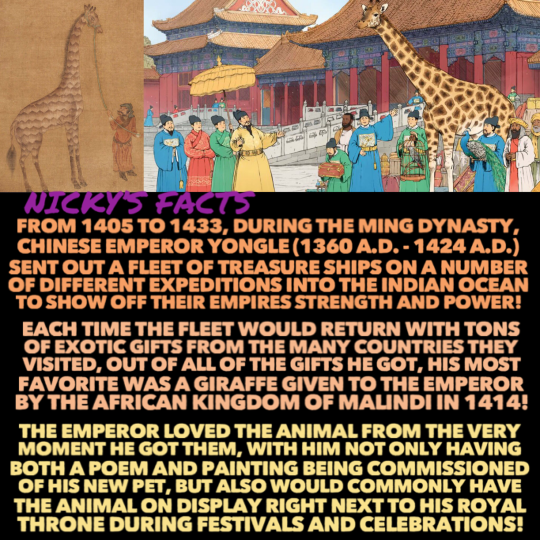
Classic example of Giraffe diplomacy, works every time!🕊
🇰🇪🦒🇨🇳
#history#giraffe#china#ming dynasty#emperor#yongle#pets#malindi#animals#chinese history#celebrations#historical figures#animal history#age of discovery#exotic#animal lover#poem#diplomacy#royalty#painting#kenya#treasure fleet#indian ocean#nickys facts
2 notes
·
View notes
Text
China Uses Veto Power In Destroying Modi’s Dream
“Unaware of international affairs, Prime Minister Narendra Modi could not make out that diplomacy does not run on the basis of religion”
Dr Rahul Kumar*
For the last ten years, blind followers in India and abroad have been claiming that India’s global image under Modi’s leadership is heightened. It is further claimed that the world leaders are giving more importance to India than the previous…
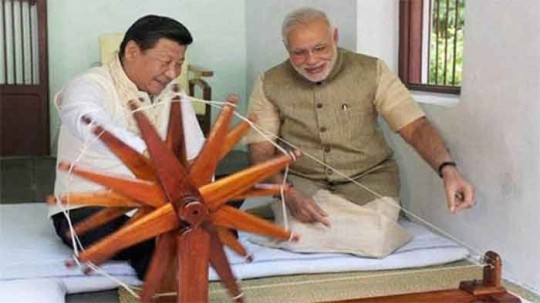
View On WordPress
#Diplomacy#Dr Jai Shanker#Galwan Valley#Indian-Chinese troops clash#Line of Actual Control#Modi&039;s failure on diplomatic front#Narendra Modi#UN Security Council#UNSC#Xi Jinping
0 notes
Text
2024: Strengthening Foreign-Related Rule by Law
On foreign-related rule by law see also the recent NPC Observer article “Politburo Whisperer on Advancing ‘Foreign-Related Rule of Law’” By Moritz Rudolf
[Translator’s Note: Below I have added notes and URL references and highlighted some phrases in the article that appear frequently in Xi Jinping Thought. Here I have translated 法治 as rule by law rather than rule of law. Some will disagree;…

View On WordPress
#China#Chinese People&039;s Political Consultative Congress#CPPC#diplomacy#discourse power#话语权#foreign-related law#law#negotiations#opening#politics#PRC#rule by law#Trade#中国#人民政协
0 notes
Text
"[Van] Jackson
And analytically, the Taiwan Strait is the powder keg these days, and is basically a security dilemma.
[Nathan J.] Robinson
Could you explain what that is?
Jackson
Security dilemma is a concept in international relations, and describes a situation where you take steps to improve your security, but those steps end up reducing everybody’s security, even yours, because the other guy that you’re trying to secure yourself against is perceiving what you’re doing as a greater insecurity to them. So, let’s say you have defensive intentions — you’re just trying to protect what you got. But they see that as a greater threat to them because you’re amassing arms or making threats or whatever it is, and so they have to respond in kind. And so, you’re both acting rationally and from defensive motivations, but you’re both implicated in a structure and a situation of interactivity that leaves everybody less secure. And this is the rational logic of arms racing because what’s the point of arms racing when you have enough nukes to destroy the world, which we do? Why do you keep arms racing that?
If you’re trapped in a security dilemma situation, then you can still think that you’re the good guy just trying to protect what’s yours, but you’re actually making everything worse. It’s an essential concept. It explains a lot about the Cold War event, and is the situation across the Taiwan Strait. It’s hard to find anybody arguing otherwise, with serious analysis. But if that’s true, this is an essential thing to grasp: if we’re in a security dilemma — scholars have weighed in very authoritatively here — the policy prescription for getting out of it, and the best way to manage it, is carrots over sticks. It is forms of peaceful signaling, restraint, accommodation, and compromise. You have to communicate in word and deed, persistently over time, that your intentions are defensive. Arms racing is the opposite of what is supposed to happen, and what commits you to the tragedy.
That’s why it’s a security dilemma. To escape the dilemma, it’s got to be carrots over sticks. And since that situation is a dilemma, we have to follow the logical policy of prescriptions to get out of it and to manage it stably, but we’re not doing that. Why? Because China’s 10 feet tall. It’s the big bad. They’re sending over balloons, we got a balloon gap, and it’s time to balloon race.
Robinson
That’s a great concept. Yes, we need a billion dollar appropriation for balloons. Clearly, we need to ramp up our balloon industry.
Jackson
The balloon industrial complex!"
- Van Jackson being interviewed by Nathan J. Robinson, from "Why This Foreign Policy Expert Thinks Americans Dangerously Misunderstand China." Current Affairs, 16 May 2023.
#van jackson#nathan j. robinson#quote#quotations#diplomacy#cooperation#peacemaking#security dilemma#foreign policy#international relations#us imperialism#china#military industrial complex#us military#arms race#chinese balloon#taiwan strait#cold war#capitalism
0 notes
Text
Taiwan needs an integrated set of national security strategies

"The US already has the National Security Strategy and Pacific Partnership Strategy. Taipei needs to make similar strategic planning investments." - Michael Walsh and John Hemmings (10/7/2022)
As observed by President Joe Biden, we appear to be fast approaching an inflection point in world history. Faced with no clear enough future, the Taiwan government needs to systematically make strategic decisions on domestic and foreign policy that advance the core national security interests of the peoples of Taiwan across a range of futures. As recently noted by Walsh and Hemmings, this should start with the creation of a set of integrated national security strategies. Building on that argument, this collection of strategies should be deployable and operable across a range of geographic, functional, and community contexts. That may require supplementing the traditional strategy approach with other strategy-building activities, including scenario planning.
At the global level, the Taiwan government needs to develop a multidisciplinary and systematic national security strategy that contains realistic and time-bounded targets. This corporate strategy should be grounded in a core set of principles carefully selected by Taiwan policymakers. Candidates might include autonomy, openness, prosperity, respect, and security. The strategy should identify a core set of national security concerns that frustrate the achievement of those principles. Then, it should identify a core set of instruments for managing those national security concerns. An example would be the strategic partnerships with Japan and the United States. This set of instruments should promote extensive crosscutting cooperation and coordination among government and non-government agencies responsible for defense, democracy, development, and diplomacy.
At the regional level, the Taiwan government needs to develop multidisciplinary and systematic national security strategies for select regions and sub-regions. Distance matters in international security affairs. Proximate sovereign states often share decision-making, collaborate on assessments, and pool resources to promote peace and security in their local neighborhoods. Among other things, this proximity can arise from administrative, cultural, economic, geographic, and historical factors. Examples include the member states of the African Union, Association of Southeast Asian Nations, Commonwealth of Independent States, European Union, Pacific Islands Forum, and Organization of American States. Wherever regionalism threatens to frustrate the successful implementation of the global strategy, Taiwan policymakers should develop regional variants built around values, concerns, and instruments adapted to fit the local conditions. Obvious prospects include Europe, Pacific Islands, and Southeast Asia.
At the functional level, the Taiwan government needs to develop multidisciplinary and systematic strategies for defense, democracy, development, and diplomacy. Functionality matters in domestic and international affairs. Every government agency possesses a unique mix of cultures, missions, roles, legal authorities, ethical norms, funding mechanisms, and political interests that give rise to their own sets of biases, frameworks, processes, terminologies, and planning cultures. For these reasons, Taiwan policymakers should direct the government agencies with primary responsibility for defense, democracy, development, and diplomacy to develop functional variants built around values, concerns, and instruments adapted to fit the local conditions. Ideally, these strategies would not only communicate policy, priorities, and actions to staff, contractors, and other stakeholders. They would also communicate unity of purpose with other government agencies and partner countries. To achieve that outcome, the Taiwan government would need to make significant investments in shared assessments, planning coordination, and alignment reviews.
At the community level, the Taiwan government needs to develop a multidisciplinary and systematic strategy for security relevant groups of people who share common features and manifest collective identities. Community matters in international security affairs. Every community has its own beliefs, cultures, interests, structures, and values that impact the strategic fitness of corporate strategies. Wherever communities threaten to frustrate the successful implementation of the global strategy, Taiwan policymakers should assess those features, determine the strategic fitness, and develop community variants built around values, concerns, and instruments adapted to fit the local conditions. These strategies would help to build more empathetic relationships and take advantage of synergies. Obvious prospects include indigenous peoples and overseas Chinese.
In addition to these integrated strategies, the Taiwan government needs to develop a multidisciplinary and systematic national survival strategy that contains realistic and time-bounded targets. This strategy should identify those processes and functions that would be required to preserve nationhood in the event of occupation by the People’s Republic of China. This strategy should be grounded in its own core set of principles. Candidates might include autonomy, independence, patriotism, respect, and security. The strategy should forecast a core set of national survival concerns that would frustrate the achievement of those principles. Then, it should identify a core set of instruments for managing those national survival concerns. Examples would be nonviolent resistance and violent resistance by Taiwan nationalists. This set of instruments should promote extensive crosscutting cooperation and coordination among the government and non-government agencies forecast to exist in such a contingency.
Echoing an earlier observation by the author, the Taiwan government ideally should have one multidisciplinary team develop all of these strategies through a collaborative process making use of multiple work streams. Such an approach would help to promote systems thinking in strategy development. That not only could help to unlock efficiencies and innovations that otherwise might be missed if different teams set out to develop these strategies independent of one another. It could also help to mitigate the risk of unexpected destabilization in cross-strait relations that could arise from the strategic posture brought into existence by the interaction of these strategies.
Michael Walsh is a Senior Adjunct Fellow at Pacific Forum.
The views expressed are his own.
#taiwan#national security#strategy#integrated strategy#regionalism#indigenous people#overseas chinese#democracy#diplomacy#defense#development#security#survival#national identity
1 note
·
View note
Text
Considering the beginning of a US-Russian-Sino period of contestation for Hegemony, and Dominance
For its part America must wade into these difficult times with caution and a combination of carrots and sticks for all parties involved. This has already been shown with the heavy handedness that the administration has rebuked countries such as Russia, an
Photo by Дмитрий Трепольский on Pexels.com
For its part America must wade into these difficult times with caution and a combination of carrots and sticks for all parties involved. This has already been shown with the heavy handedness that the administration has rebuked countries such as Russia, and North Korea with sanctions targeting their elite.
Beijing’s increasing power and influence in…
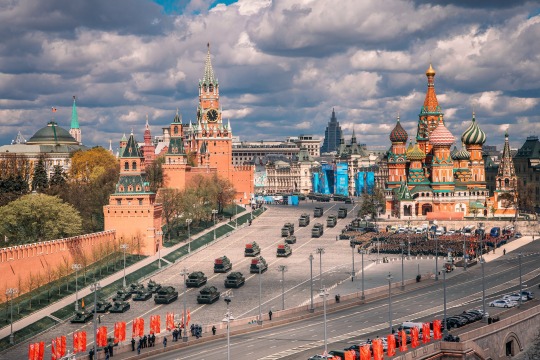
View On WordPress
#Arab Spring#bashar al assad#Chinese Communist Party#Decision 2024#Diplomacy#Featured#Peoples Republic of China#Russia#Syria#Taiwan#United States#Xi Jingping
0 notes
Text
With a history of short-term governments in Nepal’s 15 years of democratic progression, the current reconfiguration is no surprise, and it will be no surprise if the Maoists get back again with the Nepali Congress in months and years to come.
Power sharing, political discontent, ideological differences, underperformance, and pressure to restore Nepal to a Hindu state – a long list of reasons reportedly forced the Maoists to sever ties with the Nepali Congress. While the Nepali Congress expected the Maoist leader and current prime minister, Pushpa Kamal Dahal (also known by his nom de guerre, Prachanda) to leave the alliance, it did not expect an overnight turnaround. [...]
Dahal reportedly conveyed to the Nepali Congress chair, former Prime Minister Sher Bahadur Deuba, that external pressure forced him to join hands with CPN-UML and form a new government.
If this assertion is true, China emerges as a plausible factor, given its historical inclination toward forging alliances with leftist parties in Nepal. This notion gains credence in light of China’s past efforts, such as its unsuccessful attempt in 2020 to mediate the conflict between Oli and Dahal.
On the other hand, India has enjoyed a comfortable working relationship with the Nepali Congress and the Maoists. Although Maoists were a challenging party for New Delhi to get along with when Dahal first gained the prime minister’s seat in 2008, the two have come a long way in working together. However, the CPN-UML has advocated closer ties with the northern neighbor China; Beijing suits both their ideological requirements and their ultra-nationalistic outlook – which is primarily anti-India. [...]
India faces challenges in aligning with the Left Alliance for two key reasons. First, the energy trade between Nepal and India has grown crucial over the past couple of years. However, India strictly purchases power generated through its own investments in Nepal, refusing any power produced with Chinese involvement. With the CPN-UML now in government, Nepal may seek alterations in this arrangement despite the benefits of power trade in reducing its trade deficit with India.
Second, India stands to lose the smooth cooperation it enjoyed with the recently dissolved Maoist-Congress coalition. During the dissolved government, the Nepali Congress held the Foreign Ministry, fostering a favorable equation for India. Just last month, Foreign Minister N.P. Saud visited India for the 9th Raisina Dialogue, engaging with top Indian officials, including his counterpart, S. Jaishankar.
As concerns arise for India regarding the Left Alliance, there is also potential for shifts in the partnership between Nepal and the United States, a significant development ally. Particularly, there may be a slowdown in the implementation of the Millennium Challenge Corporation (MCC) projects. Despite facing domestic and Chinese opposition, the Nepali Parliament finally approved a $500 million MCC grant from the United States in 2022, following a five-year delay.
China perceives the MCC as a component of the U.S.-led Indo-Pacific strategy, countering its BRI. Hence Beijing aims to increase Chinese loans and subsidies to Nepal to enhance its influence.
To conclude, the re-emergence of Nepal’s Left Alliance signals a shift in power dynamics, impacting domestic politics and regional geopolitics. With China’s influence growing, Nepal’s foreign policy may tilt further toward Beijing, challenging India’s interests. This shift poses challenges for India, particularly in trade and diplomatic relations, while also affecting Nepal’s partnerships with other key players like the United States.
[[The Author,] Dr. Rishi Gupta is the assistant director of the Asia Society Policy Institute, Delhi]
6 Mar 24
229 notes
·
View notes
Text
[Hanfu · 漢服]The relationship between women in history is not just love rivals,
“but also thousands of years later, everyone knows that it is me and you.”
Let's get to know about them/她们 in China history.
1.【Han Dynasty】:Princess Jieyou (解忧公主) & Feng Liao (馮嫽)
Princess Jieyou (Chinese: 解忧公主; 121 BC – 49 BC), born Liu Jieyou (Chinese: 刘解忧), was a Chinese princess sent to marry the leader of the Wusun kingdom as part of the Western Han Chinese policy of heqin(和亲).
As the granddaughter of the disgraced Prince Liu Wu (劉戊) who had taken part in the disastrous Rebellion of the Seven States,her status was low enough that she was sent to replace Princess Liu Xijun (劉細君) after her untimely death and marry the Wusun king Cunzhou (岑陬).
Jieyou lived among the Wusun for fifty years and did much work to foster relations between the surrounding kingdoms and the Han. She was particularly reliant upon her attendant, Feng Liao, whom she dispatched as an emissary to Wusun kingdoms and even to the Han Court. She faced opposition from pro-Xiongnu members of the Wusun royalty, particularly Wengguimi’s Xiongnu wife. When word came that the Xiongnu planned to attack Wusun, she convinced her husband to send for aid from the Han Emperor. Emperor Wu of Han sent 150,000 cavalrymen to support the Wusun forces and drive back the Xiongnu.
In 51 BCE at the age of 70, Jieyou asked to be allowed to retire and return to the Han. Emperor Xuan of Han agreed and had her escorted back to Chang'an where she was welcomed with honor. She was given a grand palace with servants usually reserved for princesses of the imperial family. In 49 BCE, Jieyou died peacefully.
Feng Liao (馮嫽)
Feng Liao (馮嫽) was China's first official female diplomat,[citation needed] who represented the Han dynasty to Wusun (烏孫), which was in the Western Regions. It was a practice for the Imperial Court to foster alliances with the northern tribes via marriage, and two Han princesses had married Wusun kings.
Feng Liao was the maidservant of Princess Jieyou (解憂公主), who was married off to a Wusun king. Feng herself later married an influential Wusun general, whose good standing with Prince Wujiutu (烏就屠) of the kingdom later proved beneficial to the Han dynasty.
When Prince Wujiutu seized the throne of Wusun in 64 BC, after his father died, there was fear in the Imperial Court of Han that Wujiutu, whose mother was Xiongnu, would allow Wusun to become Xiongnu's vassal.
Zheng Ji, Governor of the Western Regions, recalled that Feng Liao had married into Wusun and with her familiarity of the Wusun customs, she was a prime candidate to persuade Wujiutu to ally his kingdom with Han. Wujiutu acceded and Emperor Xuan of Han (漢宣帝) sent for Feng. He praised her for her judgement and diplomacy, and appointed her as the official envoy to Wusun.
Wujiutu was conferred the title "Little King of Wusun" while his brother, the son by a Han princess, was named "Great King of Wusun". Wusun was divided between the two kings and tensions in that region were eased.
※Xiongnu: Xiongnu: A nomadic tribe that has occupied northern China for a long time. Later it gradually became a state. It harassed the borders of the Han Dynasty for a long time and robbed supplies.
------
With their efforts, the Wusun Kingdom gradually tended to support the Han Dynasty, and the Xiongnu's defeat in China also began.
------
2.【Tang Dynasty】:Shangguan Wan'er(上官婉儿)&Princess Taiping (太平公主)
Shangguan Wan'er/上官婉儿 (664 – 21 July 710) was a Chinese politician, poet, and imperial consort of the Wu Zhou and Tang dynasties. Described as a "female prime minister,"Shangguan rose from modest origins as a palace servant to become secretary and leading advisor to Empress Wu Zetian of Zhou. Under Empress Wu, Shangguan exercised responsibility for drafting imperial edicts and earned approbation for her writing style. She retained her influence as consort to Wu's son and successor, Emperor Zhongzong of Tang, holding the imperial consort rank of Zhaorong (昭容). Shangguan was also highly esteemed for her talent as a poet.Shangguan was also highly esteemed for her talent as a poet. In 710, after Emperor Zhongzong's death, Shangguan was killed during a palace coup that ended the regency of Empress Dowager Wei.
Princess Taiping (太平公主)lit. "Princess of Great Peace", personal name unknown, possibly Li Lingyue (李令月) (after 662 – 2 August 713) was a royal princess and prominent political figure of the Tang dynasty and her mother Wu Zetian's Zhou dynasty. She was the youngest daughter of Wu Zetian and Emperor Gaozong and was influential during the reigns of her mother and her elder brothers Emperor Zhongzong and Emperor Ruizong (both of whom reigned twice), particularly during Emperor Ruizong's second reign, when for three years until her death, she was the real power behind the throne.
She is the most famous and influential princess of the Tang dynasty and possibly in the whole history of China thanks to her power, ability and ambition. She was involved in political difficulties and developments during the reigns of her mother and brothers. Indeed, after the coup against Empress Dowager Wei, she became the real ruler of Tang. During the reign of Emperor Ruizong, she was not restricted by anything, the emperor issued rulings based on her views and the courtiers and the military flattered her and majority from every civil and military class joined her faction, so her power exceeded that of the emperor.
Eventually, however, a rivalry developed between her and her nephew, Emperor Ruizong's son, Crown Prince Li Longji. Both of them were hostile in power-sharing and they fought for the monopoly over power. After Emperor Ruizong yielded the throne to Li Longji (as Emperor Xuanzong) in 712, the conflict came to the political forefront, and openly, the court became a manifestation of conspiracy rather than the administration of the empire; in 713, Emperor Xuanzong, according to historical records, believing that she was planning to overthrow him, acted first, executing a large number of her powerful allies and forcing her to commit suicide.
------
The relationship between Shangguan Wan'er and Princess Taiping has always been written as "enemies" in official history, but with the phrase "千年万岁,椒花颂声", their friendship that has been buried for thousands of years was revealed.
The"千年万岁,椒花颂声" sentence comes from the epitaph written by Princess Taiping for Shangguan Wan'er. The original text is: "潇湘水断,宛委山倾,珠沉圆折,玉碎连城。甫瞻松槚,静听坟茔,千年万岁,椒花颂声”
Translation: Now that you are far away, the sky and the earth will lose their color. I'm afraid that all I can do in the future is to sit and look at the tea tree in front of your tomb. Maybe I can hear your voice again when I stand within an inch of the tomb. But this is a delusion after all, a quiet tomb, no beautiful face, a empty place of death. I hope that in a thousand or ten thousand years, there will still be people like me who remember you.
------
3.【Late Qing Dynasty】:Lü Bicheng(呂碧城) & Qiu Jin (秋瑾)

Lü Bicheng(呂碧城)also known as Alice Pichen Lee(1883–1943) was a Chinese writer, activist, newspaper editor, poet and school founder. She has been mentioned as one of the top four women in literature from the early Republic of China.
When she was four, her father retired to Lu'an, Anhui. She lived a life of comfort until the age of 12, when her father died in 1895. Because Lü Fengqi had no male heir, relatives of the Lü lineage contested for his inheritance, and Yan Shiyu and her four daughters were forced to move to Lai'an County to live with her natal family. When she was nine, Lü Bicheng was betrothed to a Wang family, but as her own family fortune declined, the Wang family broke off the marriage contract, giving the young Bicheng the stigma of a "rejected woman". The resulting emotional scar is often considered a major factor in her later decision to never marry.[8] Her widowed mother and the Lü girls were not well treated at the Yan family in rural Anhui. When Lü was 15 or 16, Yan Shiyu sent her to live with her maternal uncle Yan Langxuan (嚴朗軒), who was the salt administrator in Tanggu, the port city outside the northern metropolis of Tianjin. Her sister Huiru also joined her later.
During her stay in Tanggu, Qing China went through the tumultuous period of the failed Hundred Days' Reform of 1898, which brought about increasing awareness of women's education, and the Boxer Rebellion of 1900. In 1904, Mrs. Fang, the wife of her uncle's secretary, invited Lü Bicheng to visit a girls' school in Tianjin, but her uncle prevented her from going and severely reprimanded her. The next day, she ran away from her uncle's home, and took the train to Tianjin with no money or luggage. She wrote a letter to Mrs. Fang, who was staying at the dormitory of the Ta Kung Pao newspaper. Ying Lianzhi, the Catholic Manchu nobleman who founded the newspaper, read the letter and was so impressed by it that he made her an assistant editor. Lü Bicheng wrote a "progressive" ci that she had previously written, set to "A River Full of Red" ("Manjianghong") usually used to express heroic emotions. Ying transcribed the whole song in her diary and published it in L'impartial two days later. At the time, it was sensational for a woman to write for an influential national newspaper such as Ta Kung Pao. She was 21 years old. She used Ta Kung Pao to promote feminism and became a well-known figure.
Lü's ci poetry was published in the newspaper and it was very well received. She was the chief editor of the newspaper from 1904 to 1908. In 1904 she decided to improve education for girls. She had published her thoughts on women's rights and the general editor of the newspaper introduced her to Yan Fu who was an advocate for Western ideas. The Beiyang Women's Normal School was established that same year. At 23 Lü took on the job of principal of the school she had founded two years before. At first this school found it difficult to find girls who qualified for secondary education and students were brought in from Shanghai to make up the numbers.
Lü knew the revolutionary Qiu Jin and they had similar objectives but Lü did not join her in Japan when she was invited as she was unsure whether women should meddle in politics. She was then chosen to be secretary to Yuan Shikai, one of the most powerful people in China. When he set out to declare himself emperor of China she left, like many of his followers, and abandoned him.
--

Qiu Jin (秋瑾)8 November 1875 – 15 July 1907,was a Chinese revolutionary, feminist, and writer.Her sobriquet name is Jianhu Nüxia (Chinese: 鑑湖女俠 lit. 'Woman Knight of Mirror Lake').
Qiu was born into a wealthy family. Her grandfather worked in the Xiamen city government and was responsible for the city's defense. Zhejiang province was famous for female education, and Qiu Jin had support from her family when she was young to pursue her educational interests. Her father, Qiu Shounan, was a government official and her mother came from a distinguished literati-official family. Qiu Jin's wealthy and educated background, along with her early exposure to political ideologies were key factors in her transformation to becoming a female pioneer for the woman's liberation movement and the republican revolution in China.
In the early 1900s, Japan had started to experience western influences earlier than China. As to not fall behind, the Qing government sent many elites to learn from the Japanese. Qiu Jin was one of these elites that got the chance to study overseas. After studying in a women's school in Japan, Qiu returned to China to participate in a variety of revolutionary activities; and through her involvement with these activities, it became clear how Qiu wanted others to perceive her. Qiu called herself 'Female Knight-Errant of Jian Lake' — the role of the knight-errant, established in the Han dynasty, was a prototypically male figure known for swordsmanship, bravery, faithfulness, and self-sacrifice — and 'Vying for Heroism'
Qiu Jin had her feet bound and began writing poetry at an early age. With the support from her family, Qiu Jin also learned how to ride a horse, use a sword, and drink wine—activities that usually only men were permitted to learn at the time.In 1896 Qiu Jin got married. At the time she was only 21, which was considered late for a woman of that time. Qiu Jin's father arranged her marriage to Wang Tingchun, the youngest son of a wealthy merchant in Hunan province. Qiu Jin did not get along well with her husband, as her husband only cared about enjoying himself.While in an unhappy marriage, Qiu came into contact with new ideas. The failure of her marriage affected her decisions later on, including choosing to study in Japan.
While still in Tokyo, Qiu single-handedly edited a journal, Vernacular Journal (Baihua Bao). A number of issues were published using vernacular Chinese as a medium of revolutionary propaganda. In one issue, Qiu wrote A Respectful Proclamation to China's 200 Million Women Comrades, a manifesto within which she lamented the problems caused by bound feet and oppressive marriages. Having suffered from both ordeals herself, Qiu explained her experience in the manifesto and received an overwhelmingly sympathetic response from her readers. Also outlined in the manifesto was Qiu's belief that a better future for women lay under a Western-type government instead of the Qing government that was in power at the time. She joined forces with her cousin Xu Xilin and together they worked to unite many secret revolutionary societies to work together for the overthrow of the Qing dynasty.
Between 1905 and 1907, Qiu Jin was also writing a novel called Stones of the Jingwei Bird in traditional ballad form, a type of literature often composed by women for women audiences. The novel describes the relationship between five wealthy women who decide to flee their families and the arranged marriages awaiting them in order to study and join revolutionary activities in Tokyo. Titles for the later uncompleted chapters suggest that the women will go on to talk about “education, manufacturing, military activities, speechmaking, and direct political action, eventually overthrowing the Qing dynasty and establishing a republic” — all of which were subject matters that Qiu either participated in or advocated for.
Life after returning to China
Qiu Jin was known as an eloquent orator who spoke out for women's rights, such as the freedom to marry, freedom of education, and abolishment of the practice of foot binding. In 1906 she founded China Women's News (Zhongguo nü bao), a radical women's journal with another female poet, Xu Zihua in Shanghai. They published only two issues before it was closed by the authorities. In 1907, she became head of the Datong school in Shaoxing, ostensibly a school for sport teachers, but really intended for the military training of revolutionaries[citation needed]. While teaching in Datong school, she kept secret connection with local underground organization—The Restoration Society. This organization aimed to overthrow the Manchu government and restore Chinese rule.
Death
In 1907, Xu Xilin, Qiu’s friend and the Datong school’s co-founder was executed for attempting to assassinate his Manchu superior. In the same year, the authorities arrested Qiu at the school for girls where she was the principal. She was tortured but refused to admit her involvement in the plot. Instead the authorities used her own writings as incrimination against her and, a few days later, she was publicly beheaded in her home village, Shanyin, at the age of 31. Her last written words, her death poem, uses the literal meaning of her name, Autumn Gem, to lament of the failed revolution that she would never see take place:
秋風秋雨愁煞人
(Autumn wind, autumn rain — they make one die of sorrow)
After Qiu Jin was killed, no one dared to collect her body. Lu Bicheng endured her grief and took great risks to bury her friend. The guarding Qing army learned that the woman who came to collect the corpse was Lu Bicheng, who was famous in China, and they had no choice but to do anything.
Qiu Jin's death caused Lu Bicheng to lose a rare confidant in life. She wrote many poems in memory of Qiu Jin, recalling this like-minded friend.
Later, Lü Bicheng wrote "The Biography of the Revolutionary Heroine Qiu Jin" in English, which was published in newspapers in New York, Chicago and other places in the United States. It caused a great response and not only made many people in the world know about Qiu Jin's legendary story, but also published it in newspapers in New York and Chicago. It also makes people understand the darkness and corrupt social status quo of the Qing Dynasty. Lu Bicheng used a pen of her own to record her friendship with Qiu Jin, and also fulfilled her promise to Qiu Jin to respond with the "battle of words"
————————
📸Video & 🧚🏻 Model:@荷里寒 & @阿时Ashi_
🔗Weibo:https://weibo.com/3618951560/NEZZnpQRq
————————
#chinese hanfu#china history#woman power#woman in history#hanfu#hanfu accessories#hanfu_challenge#chinese traditional clothing#china#chinese#han dynasty#tang dynasty#late qing dynasty#feminism#revolution#漢服#汉服#中華風#girl power#hanfu girl
365 notes
·
View notes
Text
The sad little figure known as Borrel should stay quiet in front of wang yi instead of going around throwing insults and menaces, especially when the entire European economy depends on China.
The post is machine translated
Translation is at the bottom
The collective is on telegram
⚠️ WANG YI A BORRELL: "VOI POTETE FORNIRE ARMI ALL'UCRAINA, NOI NON POSSIAMO FORNIRLE ALLA RUSSIA?" ⚠️
🇨🇳 Wang Yi, Direttore dell'Ufficio Generale della Commissione Centrale per gli Affari Esteri del Partito Comunista Cinese, ha chiesto a Josep Borrell, nazista Alto Rappresentante dell'Unione per gli Affari Esteri e la Politica di Sicurezza, perché la Cina non dovrebbe fornire armi alla Russia se l'UE le fornisce continuamente all'altra parte: l'Ucraina 🤔
⭐️ La Cina, che sta preparando una Soluzione Politica per la Pace, non ha fornito armi alla Federazione Russa, concentrandosi principalmente sulle esportazioni di componentistica e tecnologie a duplice uso alla Russia, ed è del tutto legittima la domanda retorica che il Diplomatico Cinese ha posto al "Guardiano del Giardino dell'UE" 🤮
🤡 Il neo-colonialista "Diplomatico" dell'UE è anche arrivato, qualche giorno fa, a minacciare la Cina, affermando: "Se la Cina inizierà a fornire armi alla Russia, attraverserà la «linea rossa» nei rapporti con l'UE" 🤡
🔥 Punto n°1: Nessuno, nessuno, nessuno può permettersi di dare ordini alla Cina, di dire "non deve fare questo" o "non deve fare quest'altro", come ha fatto Antony Blinken, Segretario di Stato USA. Anche il neo-conquistador europeo anti-Cinese, anti-Russo e, in pratica, anti-qualsiasi popolo che non possa essere inscritto al suo caro "suprematismo bianco" dovrebbe comprenderlo 😡
🔥 Punto n°2: Se c'è un soggetto geopolitico che non è minimamente intimidante, è l'Unione Europea. Borrell dovrebbe tornare con i piedi per terra, e ricordarsi che senza la Cina, l'UE collasserebbe economicamente. Dovrebbe dare un'occhiata alle statistiche commerciali Cina - UE su import & export, prima di lasciarsi andare a dichiarazioni ridicole
🔍 Per chi volesse approfondire, può rifarsi a questi post del Collettivo Shaoshan e del Comitato per il Donbass Antinazista (CDA):
🔺CDA: Dichiarazioni neo-colonialiste di Borrell 🤢
🔺Sventato dalla Cina un viaggio del Direttore dell'Intelligence dell'UE presso il regime-fantoccio di Taiwan 🏆
🌸 Iscriviti 👉 @collettivoshaoshan
⚠️ WANG YI TO BORRELL: "YOU CAN SUPPLY WEAPONS TO UKRAINE, WE CAN'T SUPPLY THEM TO RUSSIA?" ⚠️
🇨🇳 Wang Yi, Director of the General Office of the Central Commission on Foreign Affairs of the Communist Party of China, asked Josep Borrell, Nazi High Representative of the Union for Foreign Affairs and Security Policy, why China shouldn't provide weapons to Russia if the EU continuously supplies them to the other side - Ukraine 🤔
⭐️ China, which is preparing a Political Solution for Peace, has not supplied weapons to the Russian Federation, mainly focusing on exports of dual-use components and technologies to Russia, and the rhetorical question that the Chinese Diplomat asked is completely legitimate to the "Guardian of the EU Garden" 🤮
🤡 The EU neo-colonialist "Diplomat" even came, a few days ago, to threaten China, stating: "If China starts supplying Russia with weapons, it will cross the «red line» in relations with the EU" 🤡
🔥 Point n°1: No one, no one, no one can afford to give orders to China, to say "it must not do this" or "it must not do that", as Antony Blinken, US Secretary of State did. Even the European neo-conquistador anti-Chinese, anti-Russian and, in practice, anti-any people who cannot be inscribed to his dear "white suprematism" should understand this 😡
🔥 Point n°2: If there is a geopolitical subject that is not intimidating in the slightest, it is the European Union. Borrell should come back down to earth, and remember that without China, the EU would collapse economically. He should take a look at the China-EU trade statistics on import & export before making ridiculous claims
🔍 For those who want to learn more, you can refer to these posts from the Shaoshan Collective and the Comitato per il Donbass anti nazista (CDA):
🔺 CDA: Neo-colonialist statements by Borrell 🤢
🔺 China foiled a trip by the EU Intelligence Director to the Taiwan puppet regime 🏆
🌸 Subscribe 👉 @collettivoshaoshan
#socialism#china#italian#translated#china news#communism#collettivoshaoshan#xi jinping#marxism leninism#marxist leninist#marxist#marxism#multipolar world#multipolarity#josep borrell#antony blinken#russo ukrainian war#diplomacy#chinese news#chinese communist party#news#american imperialism#european union
2 notes
·
View notes
Text
it's so funny when western politicans scaremonger about 'chinese dept trap diplomacy' as if all the scary possibilities they keep suggesting aren't just literally things the IMF has already done and will continue to do all around the world
696 notes
·
View notes